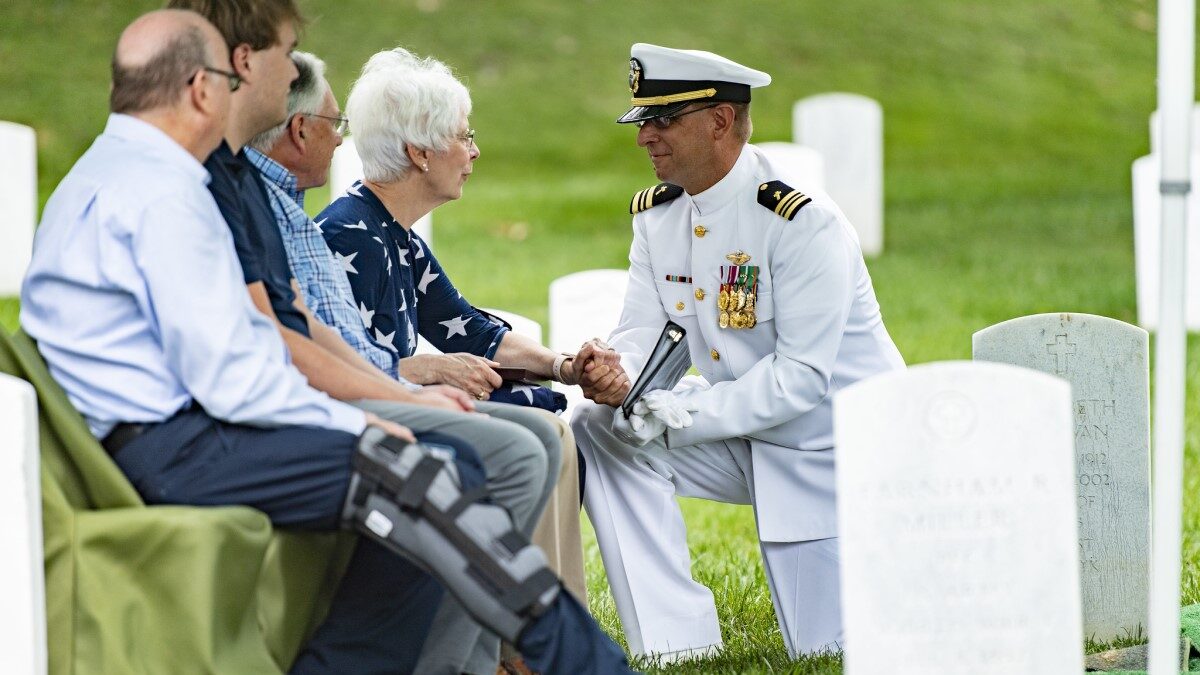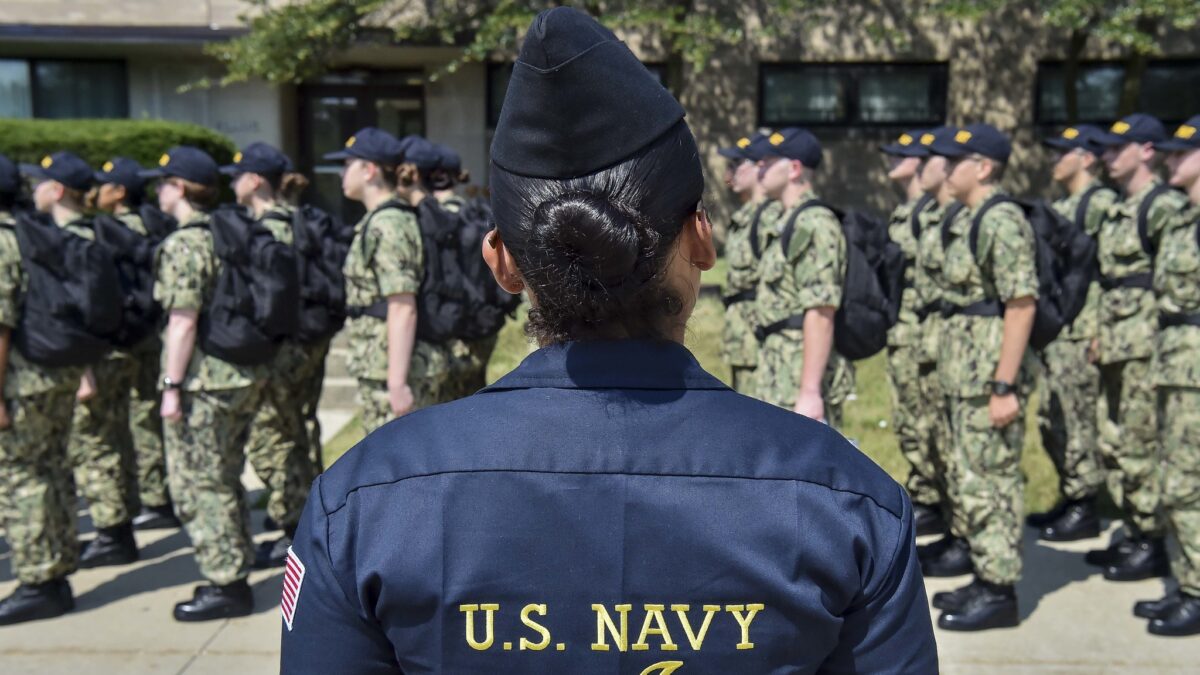
The hearing to determine if there is probable cause to charge Marine Lt. Col. Stuart Scheller with potential violations of the Uniform Code of Military Justice is scheduled for Tuesday. Are his arrest and the potential charges justified or are they, as many think, just a witch hunt to punish an honorable officer whose only sin was to demand accountability from more senior leaders?
An answer to this question is complex and requires us to consider what Scheller did that has landed him the Camp Lejeune brig. Unfortunately, the media coverage to date has taken an approach that ignores the complexities involved and the legitimate institutional concerns of the Marine Corps.
Scheller’s own statements show that he violated a direct order from his commander and that he did so knowing that there would be consequences for his disobedience (although whether that order was a lawful order is sure to be hotly litigated). It appears that his disobedience was motivated by his conscience and an unwillingness to stay silent in the face of what he – and many others – perceive as incompetent and unaccountable leadership from the top.
Scheller Calls For Accountability
Scheller’s downfall began on Aug. 26, after the announcement that 11 Marines, a Navy corpsman, and an Army paratrooper had been killed at the Kabul airport. Scheller, like many Americans, including many military personnel, is understandably outraged by their deaths as well as the abandonment of Americans in Afghanistan, the lies of the current administration, and the failure to hold anyone accountable.
That evening, he posted an almost-five minute video on LinkedIn and Facebook demanding “accountability” from senior leadership for what Gen. Mark Milley has called the “strategic failure” of the withdrawal from Afghanistan. Appearing in uniform, in what appeared to be his office, he lambasted members of his chain of command and other senior military leaders.
In his video, Scheller was understandably emotional and upset. He noted that one of the Marines was a personal friend. He charged, “From my perspective, all those people did die in vain. We don’t have senior leaders that own up and raise their hand and say, ‘We did not do this well in the end.’ . . . I am willing to throw it all away to say to my senior leaders, ‘I demand accountability.’” He was unambiguous in expressing his “discontent and contempt” for his senior leaders for their “ineptitude at the foreign policy level.”
The next day, Aug. 27, Scheller was relieved of his duties as battalion commander. In a Facebook post announcing his relief, Scheller stated, “My chain of command is doing exactly what I would do… if I were in their shoes.”
Scheller Calls For Followers to Bring System Down
Two days later, Scheller released another video. In it, the obviously emotional officer repeatedly called on senior officers to accept accountability. He appeared distraught that a former mentor, to whom he said, “I love you like a father,” had questioned whether he was an honorable man, since he had not resigned. Scheller therefore announced that he would resign, forfeiting his pension and benefits.
He concluded the video with a call to his followers: “Follow me and we will bring the whole f—king system down.”
One day later, on Aug. 30, Scheller made another Facebook post, in which he said he had been “ordered by my commanding officer to go to the Hospital for a mental health screening. I was evaluated by the mental health specialists and then sent on my way.” He added that his commanding officer who gave the order “is a standup guy, and I understand why he did it.”
Not yet arrested or confined, Scheller continued to post on social media, apparently without hindrance. He made several more Facebook posts in August and September.
Scheller Ordered to Stop Social Media Posts
Almost a month after his initial video, Scheller made another Facebook post on Sept. 25 that was particularly troubling. He had been given an order from his commander, which he quoted: “Effective immediately upon your receipt below, you are hereby ordered to refrain from posting any and all material, in any form without exception, to any social media.”
He acknowledged that his post was a violation of that order. He also attacked numerous officers and former officials by name, including former presidents Clinton, Obama, and Trump, and generals Mattis, Petraeus, Flynn, and McKenzie.
Even after acknowledging that he had been ordered not to post on social media, his Facebook post reaffirmed the closing words of his earlier video: “I do plan to bring the whole system down.” He closed, “Col Emmel please have the MPs waiting for me at 0800 on Monday. I’m ready for jail.” This last posting leaves the impression of a distraught and fragile man.
Apparently, Emmel did as requested. Scheller was arrested and jailed on Sept. 27.
Although he has not yet been formally charged, the Marine Corps released a statement indicating the potential charges being considered against Schiller. Those are violations of Uniform Code of Military Justice Article 88 (the use of “contemptuous words” against various senior officials, including the secretary of defense), Article 90 (willful disobedience of a lawful command by a superior commissioned officer), Article 92 (failure to obey a lawful standing order), and Article 133 (the catch-all: “conduct unbecoming an officer and a gentleman”).
Military’s First Amendment Rights Restricted
Scheller has admitted that he was ordered not to make any more posts on social media. His own posts and the statements by his family indicate that he disobeyed that order. Thus, there appears to be probable cause to charge him for a violation of one or more of the above articles of the Uniform Code of Military Justice.
It is important to note that this does not mean he is guilty of anything. That would have to be determined by a court-martial and Scheller is well-represented by top-drawer defense counsel who will contend that his disobedience was justified because his commander’s gag order was not a lawful order. However, even if it were determined that the blanket gag order was not a lawful order, Scheller would still be at risk for potential violations of Articles 88 and 133.
Many Americans agree with Scheller’s assessment of senior leaders, both military and civilian. As American citizens, we are entitled to express our “discontent and contempt” without fear of government retribution. For military personnel, however, it is different. Soldiers, sailors, airmen, and marines give up some of their First Amendment rights when they take their oath of enlistment or office. They also take an oath to obey lawful orders.
Media Gets It Wrong
Corporate media has mostly ignored this story. In contrast, Fox News has provided extensive coverage. However, on this issue this writer parts company with much of Fox’s coverage, many commentators, and others he greatly respects.
This rhetorical question from Laura Ingraham is representative: “How can it be that a highly respected 17-year Marine with multiple tours of duty under his belt is sitting in the brig tonight for saying the obvious last month about our withdrawal from Afghanistan?” (emphasis added here and below). The title of the segment is like it: “Saving Lt. Col. Scheller: Marine punished for fighting for freedom while our military leaders won’t.” Tucker Carlson took a similar tack, arguing that Scheller was “rotting in jail with criminals tonight for telling the truth.”
I give credit to Ingraham and Carlson, both of whom I admire, for covering this story. And I do not disagree in the least with their (and others’) characterizations of Scheller as a principled and honorable man and patriot.
However, I respectfully submit that it is an over-simplification to suggest that Scheller has been jailed because he demanded accountability from senior leaders or that he has been “punished for fighting for freedom.” It is much more complex than that. He has been arrested and may be charged because he violated an order.
Duty to Obey Lawful Orders
Disobeying a lawful order is a cardinal sin in the military. The duty to obey lawful orders is the cornerstone of military discipline and effectiveness. Its foundational nature is reflected in the fact that all officers swear in their oath of office “to obey . . . the orders of the officers appointed over me.” In considering Scheller’s case, we must acknowledge that he disobeyed the order of his commanding officer and may have violated his oath of office.
Scheller’s own statements make it appear that he recognizes that his actions and statements left his commander with little choice other than to seek to have him arrested and charged. No military commander can safely ignore a subordinate officer who disobeys a direct order, does so publicly while in uniform, solicits others to join with him to “bring the whole system down,” and then essentially dares his commander to have him arrested.
Much criticism has been directed at the Marine Corps for the seemingly disparate treatment of Scheller, when compared with the lack of accountability from the president, secretary of defense, and various generals for the strategic failure in Afghanistan. But disparate treatment by others, however unfair, cannot be a reason for a responsible military commander to overlook public insubordination and thus jeopardize the ability of his command to accomplish its mission. Any commander who did so would totally forfeit any control over his unit.
No spouse or parent would want loved ones to serve in such a dysfunctional unit. A commander who allows his subordinates to refuse to follow orders potentially places at risk the life of every man or woman whose life is entrusted to him. Scheller’s commanding officer could not ignore this tragic and distressing situation and was practically forced to take action.
Conservatives also need to consider the precedent that could be set by this case. In 2024 if, say, President Ron DeSantis were to issue an order in connection with a confrontation with the Chinese, would that order be obeyed?
Or will a destroyer captain who disagrees with it be free to criticize the president or other senior officials for conducting a “reckless” foreign policy, or even refuse to obey the order? Will his subordinates be free to lambast their senior officers on social media and call upon their sailors to follow them to “bring the system down”? Both intellectual honesty and the protection of the country demand consistent answers to these questions.









